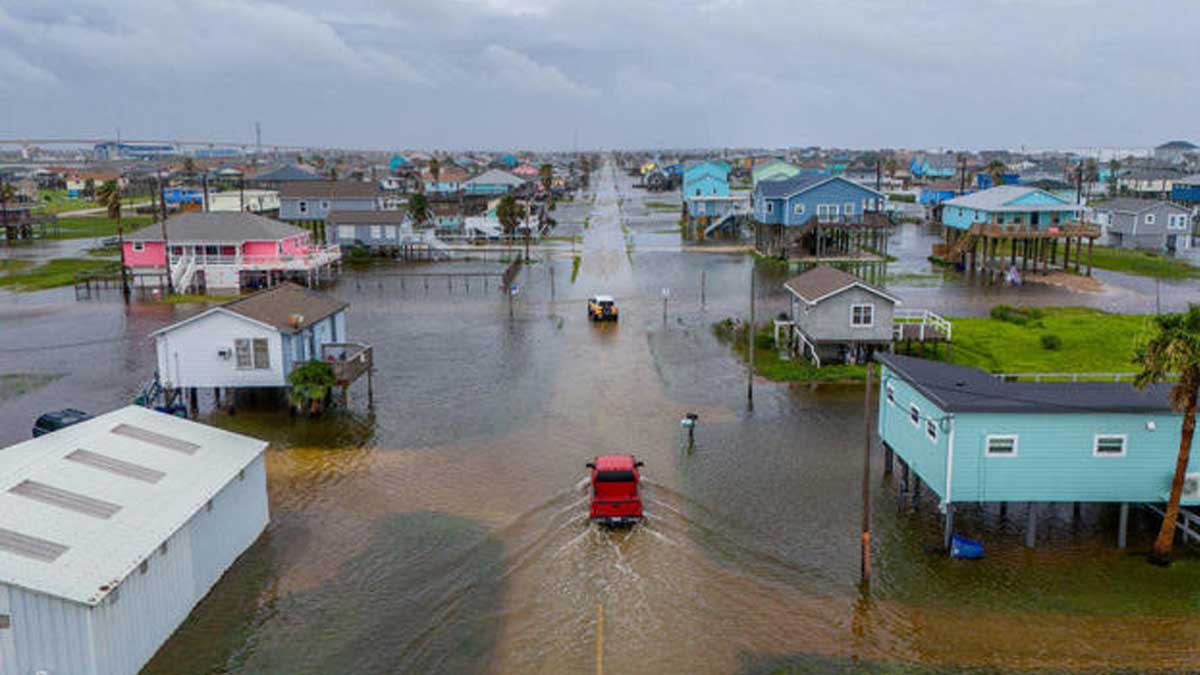- Home
- Billionaires
- Investing Newsletters
- 193CC 1000
- Article Layout 2
- Article Layout 3
- Article Layout 4
- Article Layout 5
- Article Layout 6
- Article Layout 7
- Article Layout 8
- Article Layout 9
- Article Layout 10
- Article Layout 11
- Article Layout 12
- Article Layout 13
- Article Layout 14
- Article Sidebar
- Post Format
- pages
- Archive Layouts
- Post Gallery
- Post Video Background
- Post Review
- Sponsored Post
- Leadership
- Business
- Money
- Small Business
- Innovation
- Shop
Recent Posts
Tropical Storm Alberto Causes Flooding in Texas, Hits Mexico

Tropical Storm Alberto, marking the start of an anticipated busy storm season, weakened into a tropical depression Thursday after making landfall in Mexico. This event followed intense rainfall and flooding in southern Texas, leading to significant damage and loss of life. Alberto made its initial landfall in northeastern Mexico early Thursday morning, as reported by the National Hurricane Center (NHC). By 10 a.m. local time, the storm had weakened to a tropical depression, but not before causing severe disruptions. In Mexico, the storm resulted in the tragic deaths of at least three individuals. According to the Associated Press, a man drowned in a river in Monterrey, while two minors lost their lives in the Allende municipality while riding a bicycle in the rain.
The NHC has predicted that northeastern Mexico could experience an additional 5 to 10 inches of rain, with some areas in Coahuila, Nuevo Leon, and Tamaulipas potentially receiving up to 20 inches. These extreme weather conditions pose a continued threat of flooding and landslides, further endangering residents and complicating rescue and relief efforts.
Southern Texas was not spared from Alberto’s wrath. Heavy rainfall and flooding hit the region on Wednesday, causing significant disruptions. Although the rainfall is expected to subside by the end of Thursday, the aftermath has left many areas waterlogged and in need of substantial recovery efforts. Texas Governor Greg Abbott responded by issuing a severe weather disaster declaration for 50 counties, including Galveston, Jackson, and Uvalde. This declaration aims to mobilize state resources and support for the affected areas, ensuring that recovery and relief operations can proceed swiftly.
In response to the widespread flooding and damage, emergency services in both Texas and Mexico have been working tirelessly to provide aid and support to affected communities. The severe weather disaster declaration in Texas will facilitate the allocation of additional resources and support to the 50 counties most impacted by the storm. Meanwhile, in Mexico, local authorities and emergency responders are focused on rescuing stranded individuals and providing immediate assistance to those in the hardest-hit areas.
As Alberto continues to move west, the NHC will closely monitor the storm’s progression and provide updates as necessary. The focus will remain on mitigating the storm’s impact, providing relief to affected populations, and preparing for any additional weather events that may arise in this active storm season.
Tropical Storm Alberto’s impact on Texas and Mexico highlights the importance of preparedness and rapid response in the face of natural disasters. As communities begin the arduous task of recovery, the efforts of emergency services, government agencies, and local authorities will be crucial in ensuring a swift and effective response. The experience of Alberto serves as a stark reminder of the need for vigilance and resilience as the storm season progresses.
Recent Posts
Categories
- 193 Countries Consortium Partner1
- 193cc Digital Assets2
- 5G1
- Aerospace & Defense48
- AI37
- Arts3
- Banking & Insurance11
- Big Data3
- Billionaires1,261
- Boats & Planes1
- Business332
- Careers13
- Cars & Bikes79
- CEO Network1
- CFO Network17
- CHRO Network1
- CIO Network1
- Cloud10
- CMO Network18
- Commercial Real Estate7
- Consultant1
- Consumer Tech194
- CxO1
- Cybersecurity73
- Dining1
- Diversity, Equity & Inclusion4
- Education7
- Energy8
- Enterprise Tech29
- Events11
- Fintech1
- Food & Drink2
- Franchises1
- Freelance1
- Future Of Work2
- Games149
- GIG1
- Healthcare79
- Hollywood & Entertainment203
- Houses1
- India’s 1000 Richest1
- Innovation46
- Investing2
- Investing Newsletters4
- Leadership65
- Lifestyle11
- Manufacturing1
- Markets20
- Media327
- Mobile phone1
- Money13
- Personal Finance2
- Policy569
- Real Estate1
- Research6
- Retail1
- Retirement1
- Small Business1
- SportsMoney42
- Style & Beauty1
- Success Income1
- Taxes2
- Travel10
- Uncategorized13
- Vices1
- Watches & Jewelry2
- world's billionaires1,230
- Worlds Richest Self-Made Women2
Related Articles
Atos Surpasses 2024 Liquidity Targets with €2.19 Billion Year-End Position, Marking Strong Financial Recovery
French IT giant Atos SE has announced its estimated liquidity position for...
By 193cc Agency CouncilJanuary 22, 2025Innovative Gaming Meets Sustainability: Cranfield School’s “Game of Life” Wins Prestigious FT Teaching Award
In a significant recognition of innovative educational approaches, Cranfield School of Management...
By 193cc Agency CouncilJanuary 22, 2025Bitcoin Shatters Records, Surges Past $109,000 as Trump’s Inauguration Fuels Crypto Rally
In a historic moment for the cryptocurrency market, Bitcoin reached an unprecedented...
By 193cc Agency CouncilJanuary 20, 2025Billions in Child Trust Funds Remain Unclaimed as Young Adults Miss Out on Financial Windfall
A staggering £1.4 billion in Child Trust Funds (CTFs) remains unclaimed, with...
By 193cc Agency CouncilJanuary 20, 2025















Leave a comment